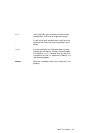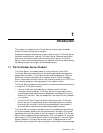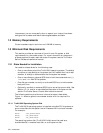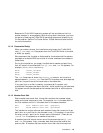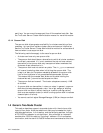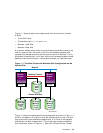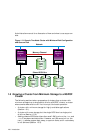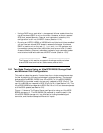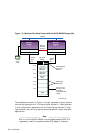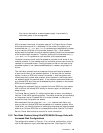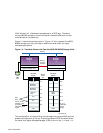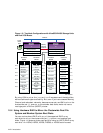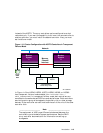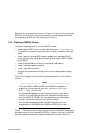
• Using a RAID array controller in transparent failover mode allows the
use of hardware RAID to mirror the disks. However, without a second
SCSI bus, second Memory Channel, and redundant networks, this
configuration is still not a NSPOF cluster (Section 1.5.4).
• By using an HSZ70, HSZ80, or HSG80 with multiple-bus failover enabled
you can use two shared SCSI buses to access the storage. Hardware
RAID is used to mirror the root (
/), /usr, and /var file systems, and
the member system boot disks, data disks, and quorum disk (if used).
A second Memory Channel, redundant networks, and redundant power
must also be installed to achieve a NSPOF cluster (Section 1.5.5).
______________________ Note _______________________
The figures in this section are generic drawings and do not show
shared SCSI bus termination, cable names, and so forth.
1.5.1 Two-Node Clusters Using an UltraSCSI BA356 Storage Shelf
and Minimum Disk Configurations
This section takes the generic illustrations of our cluster example one step
further by depicting the required storage in storage shelves. The storage
shelves could be BA350, BA356 (non-UltraSCSI), or UltraSCSI BA356s.
The BA350 is the oldest model, and can only respond to SCSI IDs 0-6. The
non-Ultra BA356 can respond to SCSI IDs 0-6 or 8-14 (see Section 3.2). The
UltraSCSI BA356 also responds to SCSI IDs 0-6 or 8-14, but also can operate
at UltraSCSI speeds (see Section 3.2).
Figure 1–3 shows a TruCluster Server configuration using an UltraSCSI
BA356 storage unit. The DS-BA35X-DA personality module used in the
UltraSCSI BA356 storage unit is a differential-to-single-ended signal
converter, and therefore accepts differential inputs.
Introduction 1–7



